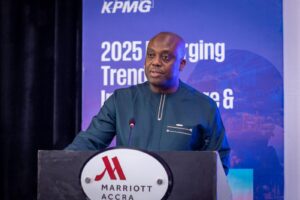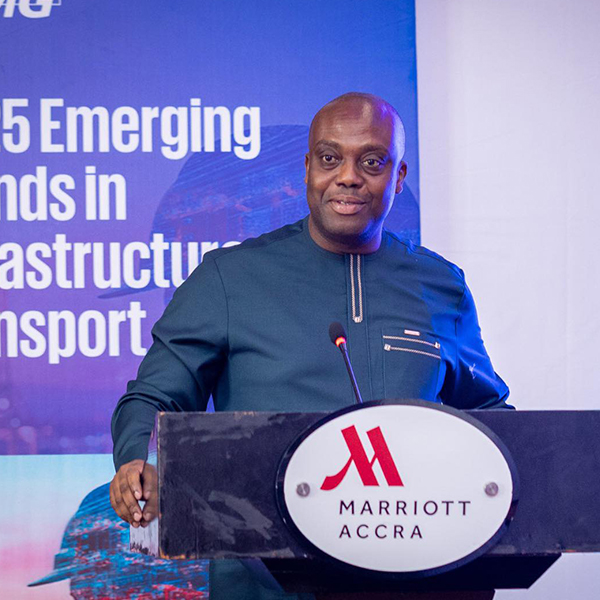Ghana stands at a crossroads. With a widening infrastructure deficit threatening to slow economic progress, government has announced a bold commitment: a GH¢13.9 billion “Big Push” investment in priority infrastructure projects starting in 2025. The figure, set to rise to GH¢21.2 billion by 2028, was unveiled by Deputy Minister for Finance, Thomas Ampem Nyarko, at the KPMG Infrastructure Roadshow in Accra.

This is not just another policy announcement. It is a call to action—for citizens, investors, civil society, and development partners to recognize that infrastructure is the backbone of opportunity, equity, and national transformation.

Why This Matters
Ghana’s infrastructure needs are staggering. Estimates suggest that meeting development targets requires US$37 billion annually for the next 30 years, with an additional US$8 billion needed each year just to maintain existing assets. Currently, Ghana scores only 47 out of 100 on the Global Infrastructure Hub index—well below peers in the same income bracket.
This means:
-
Our cities remain crippled by weak transport systems.
-
Industries struggle with unreliable energy.
-
Farmers face outdated irrigation systems.
-
Young people are locked out of the digital future they deserve.
If left unaddressed, these gaps will continue to trap millions in cycles of poverty and lost potential.
The Opportunity: A National Reset
The “Big Push” seeks to change this trajectory by channeling petroleum revenues (ABFA) and mineral royalties into critical areas such as:
-
Roads and transport
-
Energy and power generation
-
Digital infrastructure
-
Urban and rural development
“This is not a patch-up job—it’s an economic reset,” the Deputy Minister emphasized.
But government alone cannot shoulder this responsibility. Fiscal space is limited, and public resources are stretched. That is why Public-Private Partnerships (PPPs) will be the lifeline of this initiative. The Ghana Infrastructure Investment Fund (GIIF) will play a central role in setting up Special Purpose Vehicles (SPVs) to mobilize private capital, blended finance, and international development funding.
A Call to Stakeholders
For investors, the message is clear: Ghana is open for business in sectors that are vast, transformative, and waiting for innovation.
For civil society and citizens, the charge is to demand transparency, accountability, and equity—ensuring that these billions directly serve the people, not political expediency.
For policymakers and regulators, the task is to create an enabling environment where collaboration is not hindered by bureaucracy but accelerated by reform.
The Path Forward
Infrastructure is more than roads and power plants. It is about jobs for our youth, competitiveness for our industries, and dignity for our communities. The Big Push must therefore be monitored, guarded, and championed by all.
The vision is clear, but its success depends on a united effort. Ghana’s infrastructure transformation is not a government project—it is a national project, one that will define whether the country secures prosperity for the next generation or falls further behind.





